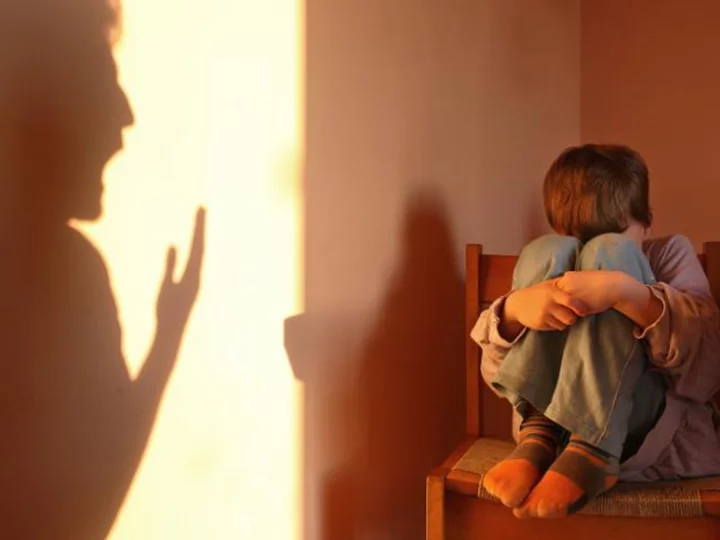
Adults shouting at children can be as harmful as sexual or physical abuse, study finds
Adults—including parents, teachers and coaches—houting at, denigrating or verbally threatening children can be as damaging to their development as sexual or physical abuse, a new study finds.
2023-10-03 04:56

Vuitton transforms Paris with a playful spectacle of color, stars and history
Louis Vuitton dazzled Paris as the latest collection from women's creative director Nicolas Ghesquière swirled epochs and emotions
2023-10-03 03:53
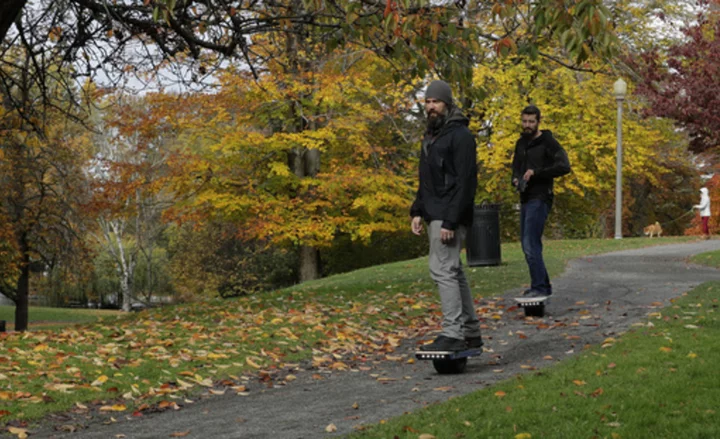
All Onewheel electric skateboards are under recall after 4 deaths and serious injury reports
All models of Onewheel self-balancing electric skateboards are under recall after at least four deaths and multiple injuries were reported in recent years, federal regulators say
2023-10-03 01:15
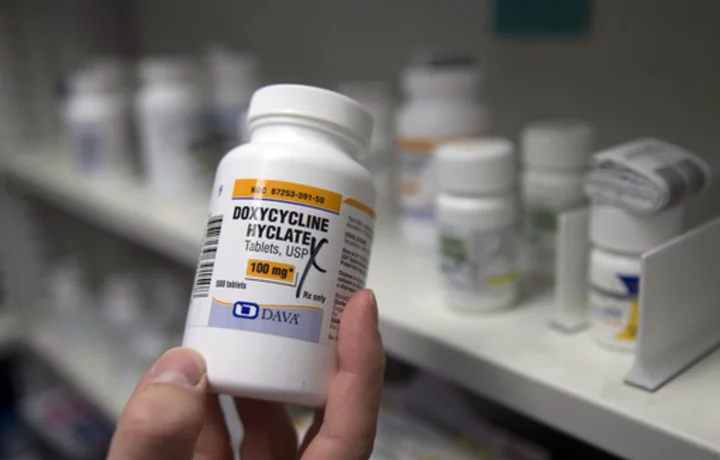
US health officials propose using a cheap antibiotic as a 'morning-after pill' against STDs
U.S. health officials plan to endorse a common antibiotic as a post-sex morning after pill that gay and bisexual men can use to avoid some increasingly common sexually transmitted diseases
2023-10-02 23:46

What Exactly Is Horseradish Sauce?
Prepared horseradish and horseradish sauce aren’t the same thing.
2023-10-02 21:26

13 Hallmark Christmas Movie Locations You Can Visit
Hallmark's Countdown to Christmas kicks off on Friday, October 20. Here are some film locations to visit to get in the holiday spirit.
2023-10-02 20:29
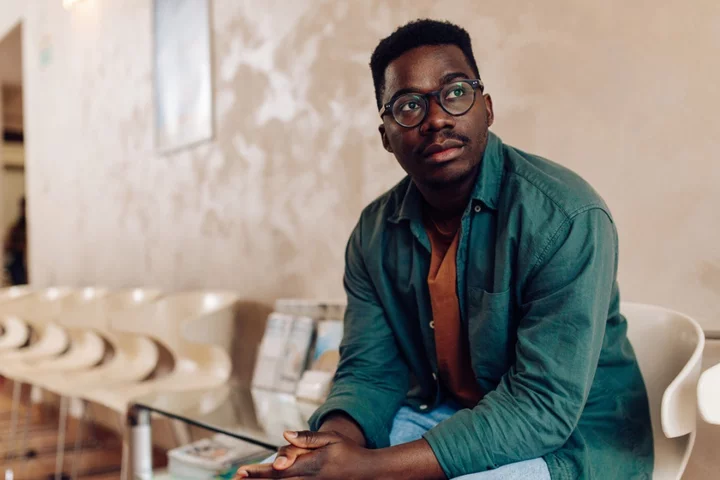
The curious status of the vasectomy in the UK in 2023: ‘Young, none and done’
In the fallout from last year’s overturning of Roe v Wade, the legislation that secured abortion rights in the US, a great many young American men simultaneously did a quite radical thing. They took to social media to intimately document themselves getting a vasectomy, to prove it was a simple and painless act. One was vegan bodybuilder and influencer Brian Turner, who was certain from around the age of 22 that he’d never want children. He acted on his stance, aged 30, and made some genuinely great content in the process. “The reaction was positive,” he tells me. “A few people commented in disbelief, calling me crazy names or saying, ‘You’re no longer a man – you chopped your balls off.’ But they don’t bother me. I have a thick skin.” It started a global discussion on vasectomies, chiefly around how men can step up and take the burden of contraception away from their female partners forever. Adam, a 35-year-old father of two from Brighton, had the same desire around the same time: “I had a growing guilt about never really fully taking responsibility for contraception. Apart from condoms, all the solutions are for women, and they all seem to have pretty gnarly side effects. It seemed like the decent thing to do, to try to take on the responsibility.” But what of younger British men, who absolutely, definitely don’t want children, who know they want to be what I call “none and done”? For them, although the hurdles are curiously higher and their reasoning more diverse, the same desire to make an informed decision about their body exists. Britain has never had a big national conversation about the vasectomy, the way America – a place where some states even offered them for free in the wake of the Supreme Court’s historic verdict – clearly has in recent years. “The vasectomy was thought to be illegal here until around the Sixties, and only came on the NHS in the early Seventies,” explains Dr Georgia Grainger, a historian of vasectomy. Before this, the concept of men choosing to sterilise themselves was – in her words – “murky”, owing to many of the key doctors and campaigners evangelising the process also being supporters of eugenics. It was actually the beloved broadcaster Michael Parkinson who, in Grainger’s eyes, did the most to burst bubbles on the subject. “He was open about having a vasectomy back in 1972 when it was still very uncommon. He did an interview about it that was on the front page of the first issue of Cosmopolitan magazine. It definitely brought awareness and also dispelled some myths – that it would affect a man’s masculinity or even cause things like a higher-pitched voice”. While the procedure has undoubtedly become more common, I’m not sure that we as a society know a huge amount more about it than in the Seventies. The good news for men is that the procedure is more successful than ever. Doctors reported in March this year that, after surveying 94,000 patients, only 0.2 per cent of men get what’s known as “chronic scrotal pain”. It is generally seen as being more than 99 per cent effective as a form of birth control. The bad news is that there’s still a lot of misinformation around it – from daft macho ideas that it decreases your testosterone levels or sex drive (it doesn’t) to the more assimilated notion you hear a lot: that, similar to an intrauterine device (IUD) with women, it’s easy to undo (it isn’t sadly, not all reversals work, they get less successful over time plus they’re significantly more expensive too). In reality, a vasectomy is quick, carried out under local anaesthetic and takes around 15 minutes. Today, most are what’s known as “scalpel-free”, meaning the incision is so tiny (only 2-4mm) that it doesn’t require stitches. The two tubes that carry sperm from your testicles are severed (hence the colloquial term “the snip”) and closed. Post-surgery, men are encouraged to rest for a couple of days, to apply ice packs to their scrotum and – if possible – wear a jock strap that’s slightly too small to ease any swelling. And that’s it. “The most common question I get asked is, “Do you still cum?’”, says Gregory, who had a vasectomy in January. “It’s funny how so many people think you’ll never ejaculate again after a vasectomy. The truth is: the difference isn’t noticeable.” In fact, sperm is still produced, but it’s discharged internally and absorbed by the membrane around the epididymis (the coiled tube behind each testicle) in a totally natural process. The body still produces semen, which is ejaculated but it no longer contains sperm – although it’s said that a man needs to ejaculate on his own a good number of times before the presence of sperm totally vanishes. “I did hear rumours about ‘40 w***s’,” confirms Gregory, “but I just stuck with the doctor’s deadlines and the sperm test came back clear four months later.” Yet, while the procedure has some fringe areas of conjecture, one important aspect is dramatically less well known: men – especially young men – won’t automatically be granted a vasectomy if they choose to have one. There’s huge variation in the UK, based on regional NHS procedures and resources, plus, “a lot depends on the individual doctor, unfortunately” according to Grainger. Some areas don’t offer them, meaning having to go private and pay an often prohibitively expensive £600. But even simply having the autonomy to choose is also a grey area. “A lot of younger men, especially if they’re unmarried or don’t have children, really have to push to get a doctor to take them seriously,” says Grainger. “We often think of that kind of pushback as being something women get within their reproductive healthcare, but I’ve heard a lot of men share their experiences of having to go to multiple doctors to find one to agree to refer them for a vasectomy, just because they ‘might change their mind’.” This seems like quite a significant flashpoint, given that all the urologists we spoke to confirmed a definite movement of younger people wanting the snip. “Traditionally, the typical age of a man seeking a vasectomy would be 35-40 years old,” states Dr Peter Quinn who performs the procedure for Vasectomy NI. “However we are finding more and more younger men in their twenties are looking for a permanent method of contraception.” Luckily, I didn’t encounter a single man who had any regrets or who had “changed their mind”. What I found instead were more men making an informed choice around their own reproductive health, from a variety of backgrounds, viewpoints and life situations. Some for example, like Simon, are single and dating. He had his tubes snipped aged 28, while in a long-term relationship that subsequently ended. Does he have any regrets? “Absolutely not – I really want to make that clear.” Despite being from a big family with plenty of cousins whom he loves, he’s felt like he’s known he never wanted children himself “from as far back as my teens”. Now aged 30, he’s starting to date again. He doesn’t declare his snipped status on the dating app he uses, but does bring it up quickly, in case there’s any awkward confusion. “Not wanting to have kids is a pretty big part of who I am, I feel like I talk about it all the time anyway without needing to advertise it.” Ray, who is also young, single and snipped feels “it’s a flex” when it comes to being on the dating scene. Aside from being a talking point and a sign of emotional maturity, crucially it “finalises that aspect of ‘maybe he’ll change his mind’. which I have experienced in relationships in the past. I’ve been very clear I don’t want children previously, but nobody fully believes that when you tell them. They might put it to one side and say ‘let’s think about that later’.” Ray also has no regrets. Dr Nick Demediuk has performed more than 50,000 vasectomies in his career. The name of his clinic in Australia says it all: Dr Snip. His perspective over 34 years of performing a life-changing operation is thus pretty unique and his recommendation is unequivocal: “It’s the simplest and easiest form of permanent contraception that responsible men can use to contribute to their relationships and the planet.” For him, one of the key reasons behind the growth in younger men taking up vasectomies has been “issues related to climate change”, with a significant subgroup of “hard-line vegans”. There’s not enough resources for people alive on earth today – it feels almost a bit selfish for us to contribute to that scenario Nat and Charlie* This chimes with Nat and Charlie*, a male/female couple who moved from a big city to the English countryside this year, in part motivated by a desire to give their beloved trio of cats more space. Having been on the fringes of eco-activism since university, their decision – raised initially by Nat and enthusiastically supported by Charlie – to have the procedure when Nat was 29 was very much informed by the climate emergency. “We both feel like we’re loving people and capable of lots of love,” says Charlie “but we both felt inside of ourselves that we never wanted to have children, especially in the world as it is today.” Citing the extreme weather events all over Europe this summer as just one example, they fundamentally worry about the world being safe enough to bring kids into, as well as the feeling that “there are not enough resources for people alive on earth today – it feels almost a bit selfish for us to contribute to that scenario.” They stop short of endorsing the emerging philosophy of anti-natalism, a controversial belief first advanced by South African philosopher David Benatar that sees all human reproduction as immoral, in part due to the climate emergency but also because life is inevitably tinged with suffering and pain. But, in choosing not to have children out of concern for the environment, they find themselves at one end of an extreme and widening political spectrum. The same week I speak to them, Hungary’s leader Viktor Orban was holding the fourth of his biannual Demographic Summits, which – with Italy’s leader Georgia Meloni, religious leaders and right-wing thinkers in tow – aimed to solve what’s seen as a crisis in underpopulation in Europe. Encouraging more babies via defence of traditional family values feels a world away from the outlooks of Nat, Charlie and the many others taking up the vasectomy as a way of definitely not having kids on principle. As if we didn’t have enough 50-50 splits in society today, an increasing number of people believe we need fewer children while an equal number believe we need more. Britain in 2023 therefore seems conflicted between two worlds – the privatised freedom of America where a young, non-parent like Brian Turner is waved through (“I talked to my GP and she said, ‘All good’ and referred me straight away”) and a more prohibitive or simply untrusting mindset that looks at a young man and says, “Hmm, go away and think about it a while.” Perhaps if we want young men in society to play a more positive, active role, maybe they need to be trusted with their own bodily autonomy first? *Names have been changed Read More No music, no ball games, no fun: society is wiping out play ‘I was really struggling to get it up’: Why younger men are turning to Viagra I couldn’t climax, so I let ‘big testosterone’ take me for a ride Woman prepares hamper basket as her husband’s vasectomy gift Why taking a mental health day could be bad… for your mental health What the world’s happiest children tell us about where Britain is going wrong
2023-10-02 15:49

Does my child have ADHD or are they just a livewire?
ADHD awareness is on the rise – yet it can still sometimes be tricky for parents and carers to know whether their child is affected or not. It’s estimated that 5% of children in the UK have ADHD, according to the charity ADHD UK. And while the condition has previously been stereotypically associated with ‘disruptive’ and ‘naughty’ behaviour, particularly in young boys, it is now understood to be far more complex and nuanced than that. “Attention deficit hyperactivity disorder, or ADHD, is a neurodevelopmental condition that impacts someone’s attention, their levels of hyperactivity and impulsivity,” explains Dr Seb Thompson, consultant clinical psychologist at Cygnet Health Care. “Typically when someone has ADHD, they tend to struggle with their attention, with hyperactivity and with impulsivity – although it is possible to just struggle with symptoms from one of those,” Thompson adds. Of course, no child has ‘perfect’ concentration all the time, and many kids can have impulsive moments or bouts of being a bit hyperactive. So, how do you know if they’re actually showing signs of ADHD? To mark October’s ADHD Awareness Month, we talked to some experts… ADHD does not always look the same There are some common patterns that crop up with ADHD, however it can also affect individuals very differently. So, if another child has similar behavioural traits to yours and has had a diagnosis, that does not necessarily mean your child has ADHD too. At the same time, children could have very different behavioural traits, yet both have ADHD. “Every child with ADHD will probably struggle with a unique set of difficulties,” explains Georgia Chronaki, senior lecturer in developmental neuroscience at University of Central Lancashire. “[For example] One child might struggle with paying attention in class, another may struggle with managing their emotions.” They find being still and quiet really hard It may be a stereotype, but uncontrollable fidgeting could be an indicator of possible ADHD. Thompson explains: “The hyperactivity and impulsivity difficulties associated with ADHD could include being unable to sit still without fidgeting, excessive restlessness, finding the quiet to be uncomfortable, difficulty engaging in tasks quietly, difficulties in turn-taking, impulsively saying or doing things without thinking through consequences, as well as a tendency not to consider the risks of behaviour.”Your child is often forgetful and loses things easilyThompson says if they are “frequently misplacing or losing items, being easily distracted, appearing to be daydreaming, and having difficulties remembering to do tasks and difficulties following through with instructions”, it may be linked with ADHD. You can tell your child is struggling If your child seems to be finding things a struggle, this could be a big indicator. “Imagine really wanting to pay attention to a conversation that is happening but your brain is not letting you,” says Thompson. “Imagine really wanting to focus on your homework, but your brain is not letting you. Imagine really wanting to sit and watch a TV programme, or sit and eat a meal, or sit and relax and your brain is not letting you. “The world can be a very frustrating place for young people with ADHD, particularly if they do not understand why their brain works in the way it does.” They seem down or depressed Thompson adds that kids with ADHD “can often suffer with low self-esteem, depression and anxiety”. He explains: “Young people who get frustrated by their difficulties may stop trying at school, or lose interest in their hobbies because they can’t sustain the attention to take part.” Seeking advice If any of these things are impacting your child’s wellbeing and making things seem hard for them, or if you are concerned they may have ADHD, then it may be worth seeking professional support. Diagnoses are typically given by specialist ADHD assessment teams, and referrals tend to be made via schools or Child and Adolescent Mental Health Services (CAMHS). Read More Charity boss speaks out over ‘traumatic’ encounter with royal aide Ukraine war’s heaviest fight rages in east - follow live Naomi Campbell on the catwalk at Sarah Burton’s final Alexander McQueen show This is how your make-up needs change as you age Victorian dahlia show recreated at Stonehenge with thousands of flowers
2023-10-02 14:55

What to stream this week: Drake, 'Fair Play,' Assassin’s Creed Mirage and William Friedkin last film
This week’s new entertainment releases include an album by Drake and another by Reba McEntire playing acoustic covers, the corporate thriller “Fair Play” starring Phoebe Dynevor from “Bridgerton,” and “Jane the Virgin” scene-stealer Jaime Camil hosts a new game show on CBS called “Lotería Loca.”
2023-10-02 01:27
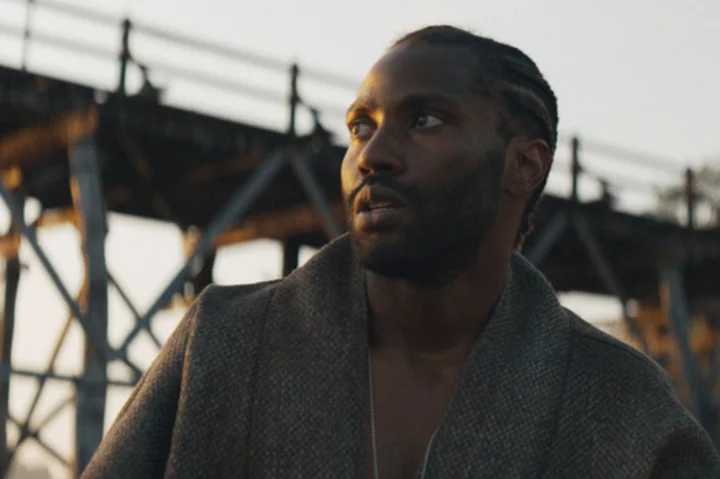
'PAW Patrol' shows bark at box office while 'The Creator' and 'Dumb Money' disappoint
After several quiet weeks in movie theaters, four films entered wide release over the weekend
2023-10-02 01:19
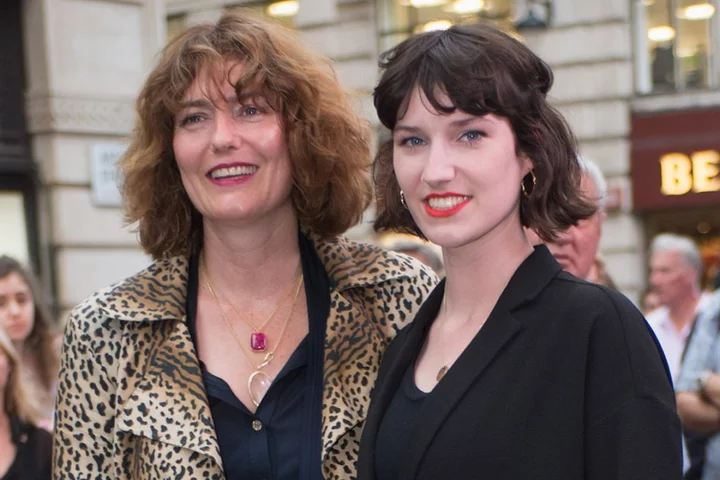
The Split star Anna Chancellor announces the death of artist daughter Poppy, aged 36
The Split and Four Weddings and a Funeral star Anna Chancellor has announced the death of her only daughter, Poppy, aged 36. On Saturday (30 September), the actor shared the sad news that Poppy had died from leukaemia on Friday (29 September) on her daughter’s Instagram page. “To all you wonderful and most-loved friends of Poppy. We send you this message with our deepest love,” the heartfelt statement began. “On September 29 Poppy died, held tight by her immediate family just as she had wished. “Despite every effort, her body could not continue any longer. We will be forever grateful to her kind and loving care team at the Royal Marsden. So we, her family and friends who all adore her join the other families who have lost loved ones far too young.” The message added that her family would continue to support her “soul’s journey”, before continuing: “Poppy was and is an unbelievable life force of creativity, compassion, wit, beauty and sheer uniqueness. She transformed our lives, and we are beyond grateful.” Poppy was born in 1988 to Chancellor and the poet Jock Scot. She was an illustrator and artist who had worked for brands such as Adidas and Cath Kidston. According to the Daily Mail, King Charles is rumoured to own one of Poppy’s artworks, given to him as a thank-you after she attended an artists’ residence at his stately home, Dumfries House, in Ayrshire. In May, Poppy spoke to the publication ahead of undergoing chemotherapy. She said: “I am terrified and physically exhausted – at the same time as learning to talk to my body and cells with loving defiance.” Poppy had been keeping her social media followers updated on her health. As well as sharing videos of herself dancing, which she dubbed “the best medicine”, Poppy recently posted an image of herself in a hospital bed after a stem cell transplant in August. Anna Chancellor has acted on screen since 1990, beginning with a role in the soap opera Jupiter Moon. In the Nineties, Chancellor was known for playing barrister Julia Piper in the legal drama series Kavanagh QC as well as playing Caroline Bingley in the 1995 BBC adaptation of Pride and Prejudice. Other recognisable roles include Henrietta “Duckface” in Four Weddings and a Funeral, Lady Anstruther on Downton Abbey, and Melanie Aickman in seasons two and three of the BBC family law drama The Split. Poppy was Chancellor’s only child. Read More Billy Connolly says ‘cruel’ Parkinson’s disease has made it difficult to walk Fred Sirieix shares details of medical procedures to ‘investigate’ recent blood tests David Beckham explains why he never sought therapy after 1998 World Cup match left him ‘depressed’ Billy Connolly says ‘cruel’ Parkinson’s disease has made it difficult to walk Fred Sirieix shares details of medical procedures to ‘investigate’ recent blood tests David Beckham explains why he never sought therapy after 1998 England match
2023-10-01 22:22
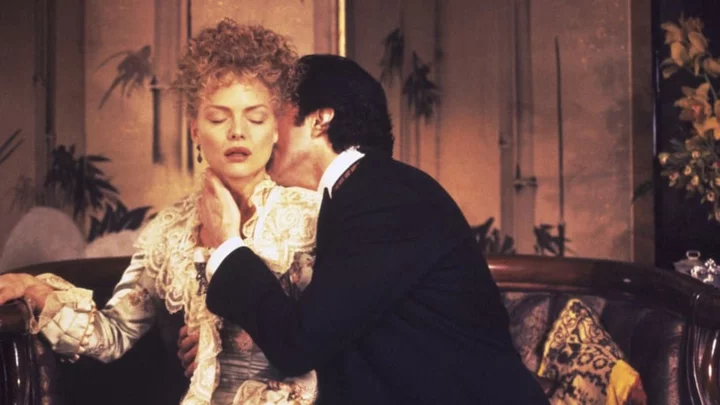
10 Great Period Pieces to Add to Your Watch List
These period pieces range from illicit romances to high-society murder mysteries.
2023-10-01 20:20
